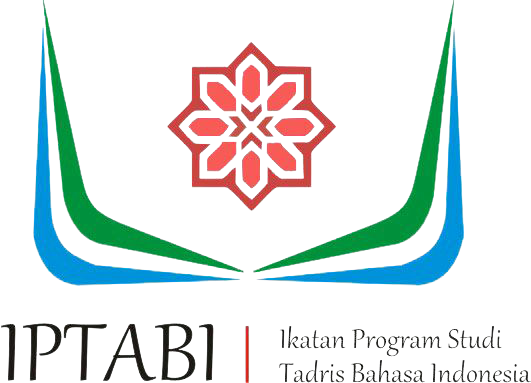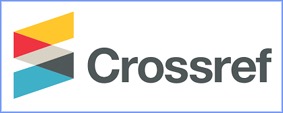Nilai-Nilai Pendidikan Karakter pada Novel Edensor (Novel Ketiga dari Tetralogi Laskar Pelangi) Karya Andrea Hirata
DOI:
https://doi.org/10.29240/estetik.v6i2.8348Keywords:
Novel, Edensor, Nilai Pendidikan KarakterAbstract
Penelitian ini bertujuan untuk mendeskripsikan 9 pilar nilai pendidikan karakter yang terkandung dalam novel Edensor karya Andrea Hirata. Beberapa langkah yang dilakukan dalam menganalisis penelitian ini adalah (1) membaca novel, (2) berusaha memahami, (3) menganalisis cerita novel yang dapat diketahui, (4) melakukan diskusi, dan (5) menarik kesimpulan. Hasil penelitian ini menunjukkan bahwa 9 pilar nilai pendidikan karakter yang terkandung dalam novel Edensor (1) terdapat 18 kutipan pada tingkat sekolah dasar, (2) terdapat 9 kutipan pada tingkat sekolah menengah pertama, (3) terdapat 15 kutipan pada tingkat sekolah menengah atas, dan (4) terdapat 46 kutipan pada tingkat perguruan tinggi. Penelitian ini menyimpulkan bahwa setelah diuji melalui analisis novel Edensor, diharapkan karya ilmiah ini dapat memberikan informasi yang akurat dan relevan tentang nilai pendidikan karakter yang terkandung dalam novel tersebut.
Downloads
References
Budiyono. (2007). Pendidikan Kewarganegaraan untuk SMA Kelas XII. Jakarta: Erlangga.
Darmadi, Hamid. (2012). Dasar Konsep Pendidikan Moral. Bandung: Alfabeta.
Elmubarok, Zaim. (2009). Membumikan Pendidikan Nilai. Bandung: Alfabeta.
Fathurrohman, Pupuh, dkk. (2013). Perkembangan Pendidikan Karakter. Bandung: PT Refika Aditama.
Fuadi, A. (2013). “Negeri 5 Menaraâ€. Jakarta: PT Gramedia Pustaka Utama.
Hirata, Andrea. (2013). “Edensorâ€. Yogyakarta: Bentang Pustaka.
Ihsan, Fuad.(2008). Dasar-Dasar Kependidikan. Jakarta: Rineka Cipta.
Gunawan, Heri. (2012). Pendidikan Karakter Konsep dan Implementasi. Bandung: Alfabeta.
Hafid, Anwar, dkk. (2013). Konsep Dasar Ilmu Pendidikan. Bandung: Alfabeta.
Kosasih, E. (2012). Dasar-Dasar Keterampilan Bersastra. Bandung: Yrama Widya.
Kurinasih, Imas dan Sani, Berlin. (2014). Sukses Mengimplementasikan Kurikulum 2013 Memahami Berbagai Aspek Dalam Kurikulum 2013. Yogyakarta: Kata Pena.
Lubis, Mawardi. (2011). Evaluasi Pendidikan Nilai. Yogyakarta: Pustaka Pelajar.
Mudyahardjo, Redja. (2010). Filsafat Ilmu Pendidikan. Bandung: PT Remaja Rosdakarya.
Muslich, Masnur. (2011). Pendidikan Karakter: Menjawab Tantangan Krisis Multidimensional. Jakarta: Bumi Aksara.
Ndraha, Taliziduhu. (2010). Budaya Organisasi. Jakarta: Rineka Cipta.
Purba, Antilan (2012). Sastra Indonesia Kontemporer. Yogyakarta: Graha Ilmu.
Prasetyo, Agus. (2011). Landasan, Tujuan, Visi, Misi, dan Kompetensi Penyelenggaraan Pendidikan Kewarganegaraan di Perguruan Tinggi. Diakses http://m.kompasiana.com/post/read/396563/2/landasan-tujuan-visi-misi-dan-kompetensi-penyelenggaraan-pendidikan-kewarganegaraan-di-perguruan-tinggi.html
Priyatni, Endah Tri. (2010). Membaca Sastra dengan Ancangan Literasi Kritis. Jakarta: Bumi Aksara.
Salahudin, Anas. (2011). Filsafat Pendidikan. Bandung: CV Pustaka Setia.
Suyitno. (2014). Kajian Novel dalam Spektroskop Feminisme dan Nilai Pendidikan. Yogyakarta: Graha Ilmu.
Wibowo, Agus. (2012). Pendidikan Karakter Strategi Membangun Karakter Bangsa Berperadaban. Yogyakarta: Pustaka Pelajar.
Wicaksono, Andri. (2014). Pengkajian Prosa Fiksi. Bandar Lampung: Garudhawaca.
Downloads
Published
How to Cite
Issue
Section
Citation Check
License
Copyright (c) 2024 Dwi Pulsha Apriliande

This work is licensed under a Creative Commons Attribution-NonCommercial-ShareAlike 4.0 International License.
Authors who publish with ESTETIK : Jurnal Bahasa Indonesia agree to the following terms:
- Authors retain copyright and grant the journal right of first publication with the work simultaneously licensed under a Creative Commons Attribution-NonCommercial-ShareAlike 4.0 International License (CC BY-NC-SA 4.0) that allows others to share the work with an acknowledgment of the work's authorship and initial publication in this journal.
- Authors are able to enter into separate, additional contractual arrangements for the non-exclusive distribution of the journal's published version of the work (e.g., post it to an institutional repository or publish it in a book), with an acknowledgment of its initial publication in this journal.
- Authors are permitted and encouraged to post their work online (e.g., in institutional repositories or on their website) prior to and during the submission process, as it can lead to productive exchanges, as well as earlier and greater citation of published work (See The Effect of Open Access).






